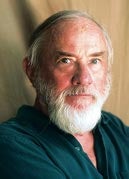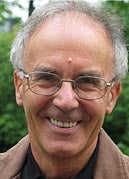Please click one of the collapsible tabs to read more about the 2011 Ocean State Summer Writing Conference.
These tabs may take a while to load!
To return to the current conference, click on “Ocean State Summer Writing Conference” above.
-
Save the date for next year’s conference, which will be held June 21-23, 2012! Details about the conference and other Ocean State Writing events will be available here soon.
Let us know if you would like to join our email list to receive information about upcoming events and readings.
2011 CONFERENCE HIGHLIGHTS
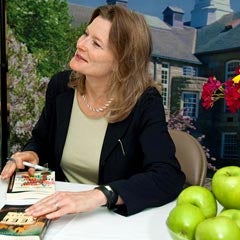
 We had a full house for Jennifer Egan’s keynote on Friday, June 24, which kicked off Part II of the conference. Many thanks to Jennifer for her inspiring talk, her generosity to conference participants, and for giving us a behind-the-scenes look at her process for creating A Visit from the Goon Squad, this year’s Pulitzer Prize-winning novel.
We had a full house for Jennifer Egan’s keynote on Friday, June 24, which kicked off Part II of the conference. Many thanks to Jennifer for her inspiring talk, her generosity to conference participants, and for giving us a behind-the-scenes look at her process for creating A Visit from the Goon Squad, this year’s Pulitzer Prize-winning novel.“I am a huge believer in conferences… Going to conferences like this one was really the way that I learned to write.”
Jennifer Egan in her keynote on June 24, 2011
 THE OCEAN STATE REVIEW
THE OCEAN STATE REVIEW The Ocean State Review is a journal of literary and visual arts. We welcome submissions of poetry, fiction, nonfiction, and translations from September 6 through February 15, 2012. Send submissions and inquiries to:
The Ocean State Review is a journal of literary and visual arts. We welcome submissions of poetry, fiction, nonfiction, and translations from September 6 through February 15, 2012. Send submissions and inquiries to:The Ocean State Review
Department of English, Swan Hall
University of Rhode Island
60 Upper College Road
Kingston, RI 02881To obtain your copy of the inaugural issue of The Ocean State Review, email copies@etal.uri.edu. The journal is $12 per copy.
Photo credit: Nora Lewis -
Robert Stone is the National Book Award-winning author of seven novels, which include A Hall of Mirrors, Dog Soldiers, A Flag for Sunrise, Children of Light, Outerbridge Reach,Damascus Gate, and Bay of Souls. His story collection, Fun with Problems, was published last year. Stone received Guggenheim and National Endowment for the Humanities fellowships, the five-year Mildred and Harold Strauss Living Award, the John Dos Passos Prize for Literature, and the American Academy and Institute of Arts and Letters Award. He also taught at the creative writing program at Yale University. For the 2010-2011 school year, he has been the Endowed Chair in the English Department at Texas State University in San Marcos. Photo credit: Phyllis Rose
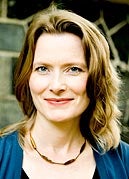
Jennifer Egan is the recipient of the 2011 Pulitzer Prize for Fiction and the National Book Critics Circle Award for Fiction for her latest novel, A Visit from the Goon Squad, for which she was also a Pen Faulkner Award and the LA Times Book Prize finalist. She is the author of The Invisible Circus, a novel which became a feature film starring Cameron Diaz in 2001, Look at Me, a finalist for the National Book Award in fiction in 2001,Emerald City and Other Stories and The Keep, which was a national bestseller. Her short stories have appeared in The New Yorker, Harpers, Granta, McSweeney’s, and other magazines. She is a recipient of a Guggenheim Fellowship, a National Endowment for the Arts Fellowship in Fiction, and a Dorothy and Lewis B. Cullman Fellowship at the New York Public Library. Her non-fiction articles appear frequently in theNew York Times Magazine. Her 2002 cover story on homeless children received the Carroll Kowal Journalism Award, and her most recent article, The Bipolar Kid, received a 2009 NAMI Outstanding Media Award for Science and Health Reporting from the National Alliance on Mental Illness. Photo credit: ©Pieter M. Van Hattem/Vistal
Tomaz Salamun is considered Slovenia’s greatest living poet. Born in Zagreb in 1941, he is one of the foremost figures of the Eastern European poetical avant-garde, revered for his unique surrealistic style. Nine of his 37 books of poetry have been published in English. The most recent are The Book for My Brother (translated by Christopher Merrill and others); Poker(translated by Joshua Beckman); Row (translated by Joshua Beckman); Woods and Chalices (translated by Brian Henry); and There’s the Hand and There’s the Arid Chair, translated by Thomas Kane and others. Blue Tower, translated by Michael Biggins, is due out by Houghton Mifflin Harcourt in October 2011. Salamun’s prizes include the Preseren Prize, the Jenko Prize, a Pushcart Prize, the European Prize for Poetry, and The Golden Wreath. He has been a Fulbright Fellow at Columbia University, a member of International Writing Program at Iowa, a Visiting Professor in Creative Writing and Distinguished Writer in Residence at the University of Richmond, and a visiting faculty member at the Michener Center for Writers, University of Texas at Austin. Photo credit:©Kari Klemela
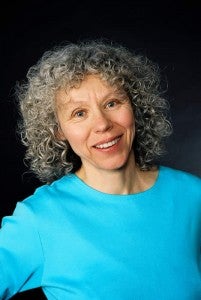
Kathleen Aguero’s poetry collections include Investigations: The Mystery of the Girl Sleuth, Daughter Of, The Real Weather, and Thirsty Day. She has also co-edited three volumes of multi-cultural literature for the University of Georgia Press. She is the winner of the 2008 Firman Houghton Award from the New England Poetry Club and a recipient of grants from the Massachusetts Cultural Council and the Elgin-Cox Foundation. She teaches at Pine Manor College, Chestnut Hill, Mass., in both the undergraduate and low-residency M.F.A. programs and in Changing Lives through Literature, an alternative sentencing program.
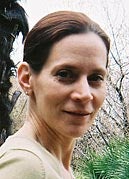
Karen Lee Boren’s fiction and nonfiction has appeared in journals and anthologies, including The Florida Review, New South, Night Train, Karamu, Hawaii Pacific Review, Dominion Review, Yemassee, Epoch. Cream City Review, BookForum,Fourth Genre, and The Best of Lonely Planet’s Travel Writing. Her novel Girls in Peril (Tin House Books) was selected for the Barnes and Noble Discover Great New Writers Award series. She has completed writing residencies at Norcroft, the Millay Colony for the Arts, Blue Mountain Artists Center, and Virginia Center for the Creative Arts. She is an associate professor at Rhode Island College and has just completed the novel Month of Fire.
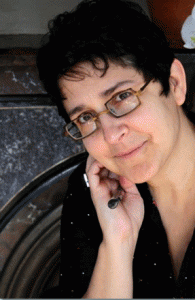
Mary Cappello, a 2011 Guggenheim Fellow in Nonfiction, is the author most recently of Swallow: Foreign Bodies, Their Ingestion, Inspiration, and the Curious Doctor who Extracted Them. Her three previous books of literary nonfiction are Called Back, Night Bloom, and Awkward: A Detour, a Los Angeles Times Bestseller. Her essays and experimental prose appear in such places as The Georgia Review, Salmagundi, Southwest Review, American Letters and Commentary, and have been awarded The Bechtel Prize for Educating the Imagination from Teachers and Writers Collaborative, the Lange-Taylor Prize from Duke University’s Center for Documentary Studies, and Notable Essay of the Year Citations in The Best American Essays. A former Fulbright Lecturer at the Gorky Literary Institute in Moscow, Russia, Cappello is Professor of English and Creative Writing at the University of Rhode Island.
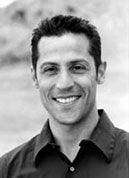
Peter Covino is a poet, translator, editor, and Assistant Professor of English and Creative Writing at the University of Rhode Island. His new book of poetry, The Right Place to Jump, is forthcoming from New Issues Press in 2012; he is the winner of the 2007 PEN America/Osterweil Award for emerging poets and also the author of Cut Off the Ears of Winter (New Issues, 2005) and the chapbook Straight Boyfriend (2001), winner of the Frank O’Hara Poetry Prize. His co-edited volume,Essays on Italian American Literature and Culture will be published by Bordighera Press, CUNY (2011). Recent poems have appeared, or are forthcoming in American Poetry Review,LIT, and The Yale Review among other venues. Covino is also a founding editor of Barrow Street Press and poetry editor forVIA: Voices in Italian Americana.
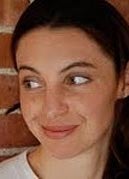
Darcie Dennigan is the author of Corinna A-Maying the Apocalypse and the recipient of the Poets Out Loud prize, Discovery/The Nation award, and the Cecil B. Hemley Award from the Poetry Society of America. Her writings have been published by the Atlantic Monthly, Kenyon Review, Tin House, and other journals. She is currently a poet in residence at the University of Connecticut.
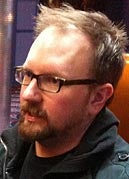
Matthew Derby is the author of Super Flat Times: Stories(2003 Back Bay Books). His writing has appeared inMcSweeney’s, Conjunctions, Fence, and The Believer, as well as the Anchor Book of New American Stories and The Apocalypse Reader. His story “January in December”
was a notable selection in The Best American Nonrequired Reading 2009.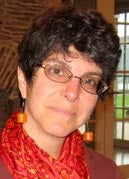
Gigi Edwards grew up in Massapequa, Long Island with the name Georgine Maniscalchi and still hasn’t gotten over it, despite now being a member of the Saunderstown Yacht Club. Her writing has appeared in Italian Americana, The Rhode Island Writers Circle Anthology, regional magazines (for which she won a Metcalf Diversity Award), and on R.I. Public Radio.

Richard Hoffman is author of the celebrated memoir Half the House; the short story collection Interference and Other Stories; and three poetry collections: Without Paradise; Gold Star Road, winner of the 2006 Barrow Street Press Poetry Prize and the New England Poetry Club’s Sheila Motton Book Award; and most recently, Emblem. He teaches at Emerson College and currently serves as chair of PEN New England.
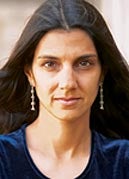
Nalini Jones was born in Rhode Island, graduated from Amherst College, and received an M.F.A. from Columbia University. Her story collection, What You Call Winter, was published in 2007, and her essays have appeared in AIDS Sutra (2008) and Freud’s Blind Spot (2010), among other publications. She teaches at Fairfield University and is currently at work on a novel.
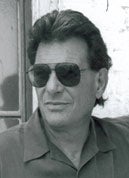
Robert Leuci is an adjunct professor in the University of Rhode Island English department. He has written seven crime novels, translated into four languages and has most recently published a memoir with Harper Collins, All The Centurions. He has also written a television play for the Arts And Entertainment network show “100 Centre Street” and has done a radio play, “Brooklyn Roofs,” for German radio. In 1999 he received the South County Center For the Arts literary prize. He lives in Saunderstown, Rhode Island.
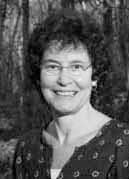
Jody Lisberger, PhD, MFA. Jody Lisberger’s story collection, Remember Love (Fleur-de-Lis Press, 2008), was nominated for a National Book Award. Her stories have appeared in Fugue,Michigan Quarterly Review, Thema, Confrontation, and The Louisville Review. She has won fiction prizes from American Literary Review and Quarterly West, and her story “Crucible” was nominated for a Pushcart Award. She is on the fiction faculty at the brief residency MFA in Writing Program at Spalding University, Louisville, Kentucky. She has taught fiction, creative nonfiction, literature, and feminist theory at Brown, Harvard, Tufts, Holy Cross, Boston University, and University of Rhode Island, where she is currently the Director of Women’s Studies. She has also recently published creative nonfiction essays on pharmaceutical marketing (“Why Women Should Take Heed”), gender issues in the workplace (“The Politics of Data”), and worked as a journalist, editor, and grant writer.
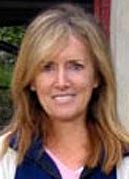
Martha Murphy is a non-fiction author, editor, book coach, and writing teacher. Her work covers a broad spectrum of topics: food and the people who bring it to us, life in out-of-the-way places, artists and the creative process, health, and the world of healthcare/medicine in the U.S. today. Her writing has been recognized with national and regional awards and featured in diverse publications, and her books have won praise in reviews across the country and enjoyed popular success. Martha has been interviewed about her work on NPR, the Food Network, and numerous network affiliates. In addition to her own writing, Martha specializes in developing book proposals for non-fiction writers, and has lead workshops at the annual Harvard Medical School Writers’ Conference.
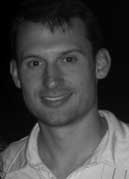
Jacob Nelson is a Master’s Degree candidate in the Graduate English program at the University of Rhode Island. He earned his B.A. in Secondary Education from Saint Louis University. He currently teaches English at Stonington High School and writes poetry in his free time.
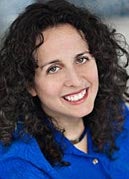
Lisa Tener, book writing coach and author, helps aspiring authors write a nonfiction/how-to book and get published. Her clients have been published by many top publishers including Random House, Simon & Schuster, Scribner’s and featured on the CBS Early Show, The Oprah Winfrey Show, CNN, Good Morning America and others. Lisa has been interviewed onABC World News and PBS-TV, and in many national publications. Lisa serves on the faculty of the Harvard Medical School CME publishing course. She blogs atwww.LisaTener.com/blog and is currently working on a book with Rusty Shelton to help authors develop their online platform.
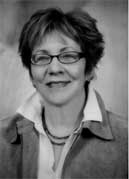
Nicki Toler’s essays, reviews, and other nonfiction pieces have appeared in a variety of publications. Her monthly “Just a Thought” column ran for years in East Greenwich Magazine, and her fiction and non-fiction work have been featured in theRhode Island Writers’ Circle Anthology. A Web editor at the University of Rhode Island, she is a co-editor of The Ocean State Review.
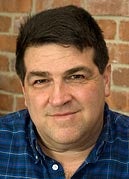
Tom Verde is an award-winning journalist who has travelled extensively throughout the Middle East, Africa, and Europe as a travel writer in addition to reporting on the history and culture of Islam and early Christianity. His work has appeared in a host of publications including The New York Times, the Boston Globe, Newsweek, Travel and Leisure, National Geographic Adventure, Biblical Archaeology, and Saudi Aramco World as well as on NPR and the BBC. He first became interested in Islam and the Middle East after retracing the ancient frankincense trade route across the Arabian Peninsula for a documentary series for Public Radio International. He holds a B.A. in English from the University of Rhode Island and an M.A. in Islamic Studies and Christian-Muslim Relations from Hartford Seminary.Â
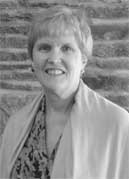
Jan Wenzel is a late bloomer. She returned to college in her 40s to earn an English degree in 1987, wrote for a weekly newspaper, and then freelanced for a couple of years, which sounds exciting if not profitable. She switched to public relations in 1991 when she joined the University of Rhode Island’s Department of Communications and Marketing. Since then, she has written hundreds of press releases and features for the alumni magazine. She also has experience in video scripts and advertising copy. Although the petals on her flower are beginning to droop, she expects that a novel or a nonfiction book, poems, or essays may still be germinating.
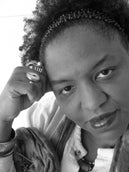
Crystal Wilkinson is the author of two collections of stories,Blackberries, Blackberries, winner of the 2002 Chaffin Award for Appalachian Literature and Water Street, a finalist for both the Orange Prize for Fiction and the Hurston/Wright Legacy Award. Both books are published by Toby Press. She lives in Lexington, Kentucky, and teaches writing and literature in the BFA in Creative Writing Program at Morehead State University and the MFA in Creative Writing Program at Spalding University. She and her partner Ron Davis edit Mythium, a literary journal celebrating writers of color and the cultural voice.
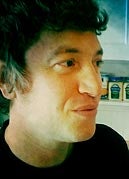
Max Winter, a graduate of UC Irvine’s MFA program and a recipient of a 2011 RISCA Merit Fellowship in Fiction, lives in Providence with his wife and son. He also teaches writing at the University of Rhode Island and co-edits The Ocean State Review. He thinks people shouldn’t check out with their sunglasses on and that there’s no such thing as ?!
-
Please return for updates. Direct inquiries to ossummerwriting@gmail.com
Thursday, June 23, 2011
 12:30-1:15 p.m. Registration: Part I of Conference Begins
12:30-1:15 p.m. Registration: Part I of Conference Begins1:30-3:30 p.m. Workshops Session I (See Workshop Descriptions)
- Creative Writing fiction and creative non-fiction: Matthew Derby Closed
- Intermediate Fiction: Jody Lisberger Closed
- Advanced Fiction: Nalini Jones
- Creative Nonfiction: Richard Hoffman Closed
- Beginning Poetry: Darcie Dennigan
- Advanced Poetry: Kathleen Aguero
4-5 p.m. One-on-One Consultations & Networking
5-6:30 p.m. Reception and Reading
Friday, June 24, 2011
9-11:30 a.m. Workshops Session II
11:30 a.m.-12:30 p.m. Workshop Participant Lunch/Networking
 11-12:15 Registration: Part II of the Conference Begins
11-12:15 Registration: Part II of the Conference Begins12:30-2 p.m. Keynote Talk, Reading, and Q&A with Jennifer Egan (free and open to the public)
2-2:30 p.m. Dessert reception with Jennifer Egan
Choose one 90-minute Master Class or two 45-minute Craft Sessions:
Master Classes
- 2:30-4 p.m. Fiction with Karen Lee Boren: Writerly Reading
- 2:30-4 p.m. Creative Nonfiction with Richard Hoffman: The First Page(s)
Craft Sessions
- 2:30-3:15 p.m. Fiction with Nalini Jones: A Place in the World — Bringing Setting to Life
- 2:30-3:15 p.m. Fiction/Nonfiction with Crystal Wilkinson: Point of View — The Eye of I
- 2:30-3:15 p.m. Poetry with Darcie Dennigan: Starting Out — The Pleasure of Playing Around
- 3:20-4:05 p.m. Fiction with Crystal Wilkinson: Ways of Seeing/Ways of Reading/Ways of Revising
- 3:20-4:05 p.m. Fiction/Nonfiction with Matthew Derby: Narrative Revision — The Sentence
- 3:20-4:05 p.m. Poetry with Kathleen Aguero: Be Bold — Revise!
4:15-5:15 p.m. Keynote Talk, Reading, and Q&A with Robert Stone (free and open to the public)
5:15-8:30 p.m. Drinks, Dinner, Readings, and Reception
Saturday, June 25, 2011
8:45-10:45 a.m. Workshops Session III
9-10:45 a.m. Making Time for the Writing Life with conference faculty (for Part II attendees only, includes continental breakfast and networking)
11 a.m.-noon A Conversation with Robert Stone and Robert Leuci
11 a.m.-noon Building an Online Platform with Lisa Tener
Noon-12:30 p.m. Box lunch
12:30-1:45 Keynote Talk, Reading, and Q&A with Tomaz Salamun (free and open to the public)
Choose one 90-minute session or two 45-minute sessions:
90-Minute Sessions
- 2-3:30 p.m. Fiction Master Class with Crystal Wilkinson: She’s Making a Scene Again
- 2-3:30 p.m. Poetry Master Class with Tomaz Salamun: Lost and Found in Translation
- 2-3:30 p.m. Creative Nonfiction with Mary Cappello: Swallowed and Saved: The Chevalier Jackson Foreign Body Collection and the Art it has Inspired, a multimedia presentation
45-minute Sessions
- 2-2:45 p.m. Fiction/Creative Nonfiction Craft Session with Jody Lisberger: Shaping Scene
- 2-2:45 p.m. Nonfiction Publishing Session with Martha Murphy: Writing a Nonfiction Book Proposal — Your Key to a Book Contract
- 2:50-3:35 p.m. Fiction/Creative Nonfiction Craft Session with Jody Lisberger: To Dialogue or Not to Dialogue
- 2:50-3:35 p.m. Nonfiction Publishing Session with Tom Verde: Pitching the Feature Story
3:45-5 p.m. What’s Next? Living the Writing Life with conference faculty
5:15-6 p.m. Conference workshop participants’ reading
If you have a disability and need an accommodation, please call 401.569.9801 at least three business days in advance. For TTY assistance, please call the Rhode Island Relay Service at 800.745.5555.
-
Here is a closer look at some of our conference offerings. Check back regularly as new events are added, or follow us on Facebook, where you will find more information about the programs, presenters, writing events in the Northeast, and resources for writers.
CONFERENCE PART I
 INTENSIVE WORKSHOPS (Each workshop meets three times: Thursday,1:30-3:30 p.m.; Friday, 9-11:30 a.m.; and Saturday, 8:45-10:45 p.m.
INTENSIVE WORKSHOPS (Each workshop meets three times: Thursday,1:30-3:30 p.m.; Friday, 9-11:30 a.m.; and Saturday, 8:45-10:45 p.m.- Closed Creative Writing Workshop (Fiction and Creative Nonfiction) with Matthew Derby
- This hybridized fiction/non-fiction workshop will focus on the practice of inversion. Whether we’re rendering a passage in a novel or attempting to represent an historical/autobiographical event, we often write ourselves into a corner by hewing too closely to ‘what we know.’ One effective way to escape certain conventions that threaten to make our stories predictable is to invert some aspect of the narrative. We’ll consider the ramifications of standing character, setting, tone, and perspective on their head – can we gain new insight on a dull or problematic scene by radically shifting a single vector? To answer this and other related questions, we will try a series of short exercises designed to hep us re-imagine our own work.
- Closed Fiction Workshop (Intermediate) with Jody Lisberger
- This workshop will spend time looking at and doing some writing exercises relevant to fiction writers who have already had a semester-long beginning fiction class or the equivalent. We will review ways to deepen characters, create dramatic tension, shape scene, and use and proportion dialogue and narrative summary. We will explore uses and pitfalls of back-story, consider strategies for choosing effective points of view and point of view changes, and examine the power and pitfalls of endings. The workshop will generate material for participants to take home and develop into full-blown stories. There will be a few writing assignments and readings given in workshop on Thursday and Friday that will be due for the next day’s workshop.
- Fiction Workshop (Advanced) with Nalini Jones
- In this workshop, we’ll try to think about fiction the way musicians think about jazz: not just about the notes themselves, beautifully sounded — notes such as characters, setting, point of view, plot, invention — but about what makes those notes swing. How does a piece of fiction come to life? Through mastery of technique, in part, and we’ll consider elements of craft. But we’ll also think about how fiction begins and where it takes us, about its impulses and possibilities. There will be a few shared readings assigned in advance, and short writing exercises intended for discussion.
- Closed Creative Nonfiction Workshop with Richard Hoffman: Writing “from Life”
- This is a craft workshop for students writing memoir or other first person nonfiction. Each meeting will begin with a short lecture on some aspect of craft or a discussion of some issue facing writers of memoir. Questions to be taken up in these lectures/discussions include the ethics of writing about the living, rounding out the character “I”, moving around in time, the braiding of recurrent themes throughout the narrative, the balance of scene and narration, the role of research in first person nonfiction, and the inclusion of dreams, letters, other storytellers, and public events.
- Poetry Workshop (Beginning) with Darcie Dennigan
- Poets are the thieving magpies of the writing world. And in this course, we will practice the art of reading as thieves, stealing poetic moves from great contemporary poets. We’ll also steal inspiration, because poems are always in dialogue with other poems, and because the only adequate response to a beloved work of art is another work of art. Each meeting, we will try one or more writing exercises, share student work, and discuss great poems. I want you to leave this conference with feedback on your work, at least two new poems, and a developing appreciation for how you can make other poets’ techniques your own.
- Poetry Workshop (Advanced) with Kathleen Aguero
- In this class we will explore issues of craft, experiment in ways that push us beyond our usual subject matter and style, and explore the fine line between challenging and confusing our readers. We will use class time reading and examining the work of other writers who may serve as models, working on in-class writing exercises, and critiquing and responding to one another’s poems.
CONFERENCE PART II
 MASTER CLASSES (Friday and Saturday)
MASTER CLASSES (Friday and Saturday)Friday, 2:30-4 p.m.
- Creative Nonfiction with Richard Hoffman: The First Page(s)
- In this seminar we will look at the opening pages of several memoirs and discuss what each accomplishes and how. Many memoirists choose to begin with a prologue, a tasty hors d’oeuvre to whet the reader’s appetite. Others plunge the reader into action and dialogue. Still others write an overture that gives us the whole of the story in an abbreviated form. We will discuss the benefits and shortcomings of each approach while we attend to the irreducible criteria for an effective opening: the seduction of the reader, the establishment of trust, and the profluent energy that summons the reader forward into the story.
- Fiction with Karen Lee Boren: Writerly Reading
- In order to become a better writer, one must first become a better reader — a more humble, attentive, and creative reader. In this class, we will learn how to read fiction from a writer’s perspective and how to identify and track an author’s choices from sentence to sentence.
Saturday, 2-3:30 p.m.
- Fiction with Crystal Wilkinson: She’s Making a Scene Again
- In this session we will focus on writing complete scenes and building tension in those scenes to create fiction (even the quietest of fiction). We will look at one published writer’s ability to make a scene and then complete the skeleton of a story in the time allotted through a variety of exercises. Enrolled participants will be given the published story prior to the class.
- Poetry with Tomaz Salamun: Lost and Found in Translation
- We will focus on a select number of participants’ poems as examples and discuss them, while also exploring issues of translating poetry from English, French, Italian, Spanish, and Serbocroatian. Participants can also propose their own translation experiences for more consideration. We will further discuss whether and why the American poetry scene is the most vital and vibrant in the world today.
- Creative Nonfiction with Mary Cappello: Swallowed and Saved: The Chevalier Jackson Foreign Body Collection and the Art it has Inspired, a multimedia presentation based on Cappello’s book Swallow: Foreign Bodies, Their Ingestion, Inspiration, and the Curious Doctor Who Extracted Them (New Press, 2010).
- What might a poetics of literary nonfiction look like? How and why might we as writers wish to bring words and visual images into the same space? What kind of life can writing have in performance — beyond and inclusive of the page upon which it is written? How can biographically inflected or research-based nonfiction open our writing into unexpected areas of reflection, imagination, and investigation? Cappello will present an “illustrated reading” followed by discussion and Q and A. Cappello is a 2011 Guggenheim Fellow in Nonfiction.
 CRAFT SESSIONS (Friday and Saturday)
CRAFT SESSIONS (Friday and Saturday)Friday, 2:30-3:15 p.m.
- Poetry with Darcie Dennigan: Starting Out — The Pleasure of Playing Around
- The job of the poet, says Paul Valery, is not to experience the poetic state, but to inspire it in others. To write a poem, no expert trance is necessary… just a willingness to play — as recklessly as possible — with words and with images. And if you think of it that way, how can there ever be such a thing as writers’ block? In this session, we will use ideas from Dean Young’s book The Art of Recklessness to practice playing like poets — hearing one word inside another, seeing one image hidden in another, and finding one poem beneath another. We’ll also practice doing math like poets, for whom 1+1 always equals 3. And in our mishearings, imaginings, and errors of calculation, I hope we will make serious poetry.
- Fiction with Nalini Jones: A Place in the World — Bringing Setting to Life
- Eudora Welty wrote that “Place is one of the lesser angels that watch over the racing hand of fiction.” Why is a sense of place such a strong feature of good writing? How does it contribute to character, plot, and what Welty calls “feeling?” And how do we, as writers, funnel the smells, sounds, and sights of a place into language? How do we create whole worlds — real, reenvisioned, or imagined — in which our characters struggle or thrive? This seminar will explore the “lesser angel” of fiction, with special attention to writers whose work may guide us as we begin to invent worlds of our own.
- Fiction/Creative Nonfiction with Crystal Wilkinson: Point of View or The Eye of the I
- Unlike some of the structural elements of fiction like character or plot, point of view is essentially more about the relationship you form from story to reader, a psychological connection rather than a concrete one. Henry James called first person “that accursed autobiographic form which puts a premium on the loose, the improvised, the cheap and the easy.” We will look at examples of first person narratives that work using examples and if time permits, a few writing exercises.
Friday, 3:20-4:05 p.m.
- Fiction with Crystal Wilkinson: Ways of Seeing/Ways of Reading/Ways of Revising
- “Seeing comes before words. The child looks and recognizes before it can speak.”(John Berger) This craft session will broach a variety of approaches to reading, revising, and seeing your work and the works of others as a writer. We will start by “re-seeing†work by some published authors and then take a look at ways to make new discoveries in your own work. Examples will most likely include Kiana Davenport, John Edgar Wideman, James Baldwin, and others. If time permits the craft session will end with a culminating exercise.
- Fiction/Nonfiction with Matthew Derby: Narrative Revision — The Sentence
- In this session we will pay close attention to the sentence: to its shape and meaning; to its emotional and intellectual impact. While in initial pursuit of any number of worthwhile goals — plot, character, theme — we tend to forget that stories, novels, and essays alike are made out of sentences. But when it comes time to revise, we overlook the sentence at our own risk. In this session we will look at some particularly effective sentences in order to understand how and why sentence-level choices get made. Then we will do a series of exercises designed to help us reconsider and revise our own under-performing sentences.
- Poetry with Kathleen Aguero: BE BOLD — REVISE!
- To revise means to see again, but sometimes, in order to see the possibilities of a piece of writing, we need to loosen ourselves from our original conception of it. In this seminar, we will look at different styles of writing and try some radical revision of our own. Bring a piece you’re willing to dismantle and reconstruct rather than one in the “tinkering” stage.
Saturday, 2-2:45 p.m.
- Fiction/Nonfiction with Jody Lisberger: Shaping Scene
- This craft session will look at some examples in fiction and nonfiction where writers deliberately shape a scene to create maximum impact. It will propose some guidelines for how to begin, develop, and end scenes and offer a few exercises for writers to practice scene development.
Saturday, 2:50–3:35 p.m.
- Fiction/Nonfiction with Jody Lisberger: To Dialogue or Not to Dialogue
- This craft session will look at a few examples where writers of fiction and nonfiction choose to use, not use, or abbreviate the use of dialogue to make sure the moment conveys the necessary dramatic tension and character focus a good piece of writing needs. It will give participants a chance to experiment with using and pacing dialogue and indirect discourse or narrative summary to keep the writing focused where it best serves the scene or larger intent of a story or essay.
 “WRITING LIFE” AND PUBLISHING SESSIONS (Saturday)
“WRITING LIFE” AND PUBLISHING SESSIONS (Saturday)Saturday 9-10:45 a.m.
- Making Time for the Writing Life with conference faculty.
- As you know, writing is a time-consuming endeavor. And because our lives are so busy, finding time to write can be difficult. In this session, we will look at various ways we can arrange our lives in such a way that we will always have the time to write.
Saturday 11 a.m.-Noon
- Building an Online Platform with Lisa Tener
- Aspiring authors often feel overwhelmed when they hear they need to develop a “platform” before they can interest literary agents and publishers. Yet, developing a platform can be enormously rewarding and fun — and help you reach many more people with your writing. In this presentation we will explore what publishers expect of authors; some of the most effective ways of developing a platform — online and offline; how to evaluate which methods may work best for your personality, interests, and audience; what methods can generate income in addition to expanding your following; and how to have fun and be strategic about your platform-building activities.
Saturday, 2-2:45 p.m.
- Writing a Nonfiction Book Proposal: Your Key to a Book Contract with Martha Murphy
- In this introduction to writing a nonfiction book proposal, we will review the purpose of a book proposal, the sections it must include, and the most important things a writer needs to know — from word choice to research — about this unique and powerful document.
Saturday, 2:50-3:35 p.m.
- Pitching the Feature Story with Tom Verde
- No matter how great your idea is for a story, it has to get an editor’s attention within the first few seconds or into the trash folder it goes. That’s just one of the many hard realities of the writing business. This session will cover the basics of writing a winning query and how to make yours stand out from the rest.
Saturday, 3:45-5 p.m.
- What’s Next? Living the Writing Life with conference faculty
- So. Now that this conference has inspired you to Go Forth and Prosper as a writer, how do you keep from backtracking? A week, a month, a year from now, what will you be able to say you’ve done? This session will send you away with a “Resources for Writers” booklet of practical tips for advancing your writing career and furthering your identity as a writer.
 Home
Home Browse
Browse Close
Close Events
Events Maps
Maps Email
Email Brightspace
Brightspace eCampus
eCampus



